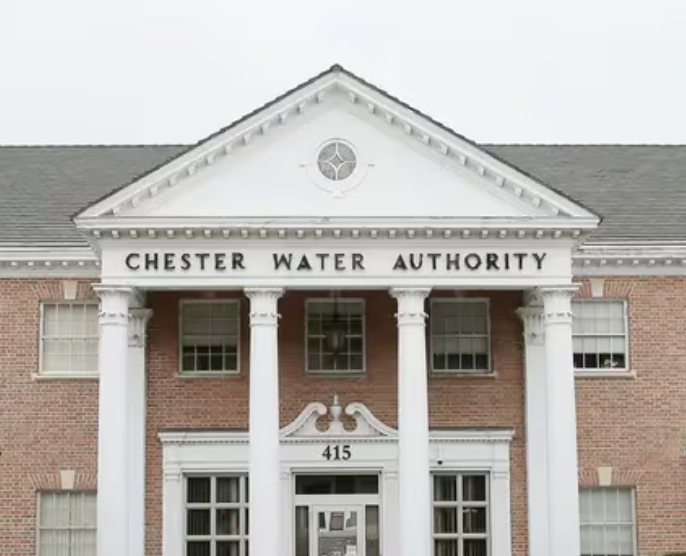The contentious battle over the Chester Water Authority’s (CWA) future has taken a pivotal turn, with the case now heading back to the Pennsylvania Supreme Court.
A federal bankruptcy judge made the decision Nov. 20 after an agreement was reached between attorneys for CWA and the City of Chester.
CWA attorney Frank Catania expressed frustration, calling the delay unnecessary. “I’m just saddened that it took this long to have the Supreme Court able to hear a matter that should have been heard in 2022,” he told DVJournal.
CWA had been in legal limbo for years due to the public fight involving the utility, city officials, and Chester Receiver Michael Doweary.
Chester solicited proposals for a CWA sale in 2020, just before Doweary was named receiver by then-Gov. Tom Wolf. One year later, the Commonwealth Court ruled Chester had the authority to sell CWA. CWA appealed to the Pennsylvania Supreme Court.
The case was halted when Doweary put Chester in federal bankruptcy court in 2022.
Doweary attributed Chester’s financial struggles to one-sided contracts, allegations of fraud, and financial mismanagement. He clashed with the city council over pay and certain contracts. Doweary noted the city has $369 million total in unfunded pension benefits and retiree healthcare. Adding to the perception of incompetence, the city lost a total of $500,000 due to a phishing scheme and an alleged ghost employee scam.
Chester officials and the Receiver presented the CWA sale as a solution to stabilize the financially strained city, particularly with regard to pensions and retiree benefits. This fall, Doweary said the utility is a political subdivision of Chester and the only substantial asset that can be monetized.
CWA claimed otherwise. Its attorneys argued in federal court documents Pennsylvania law makes it a “co-equal municipal subdivision,” not a political subdivision of Chester. That meant CWA controlled its financial future and was not subject to the whims of Chester officials.
More importantly, said CWA attorneys, the utility received most of its funding from ratepayers who include individual, commercial, and government entities. That included more than $390 million in infrastructure improvements dating back decades. Almost all of that money came from customers other than Chester, according to the utility. “State law expressly prohibits the CWA’s revenue to be used to pay for a municipality’s debts,” wrote attorneys.
In a twist, CWA gained a surprising ally in Aqua Pennsylvania. The private company, which agreed to purchase the utility from the city in 2020, told a federal bankruptcy judge in October it opposed Doweary’s plan to sell CWA.
Aqua accused Doweary of using the federal bankruptcy court “as a sword” to force CWA to sell. Aqua PA suggested the Receiver also wanted to avoid facing the Pennsylvania Public Utilities Commission (PUC) over regulatory issues. Doweary and Aqua PA were in a regulatory fight over Aqua’s planned purchase of the Delaware County Regional Water Quality Control Authority. The PUC stayed the sale last year.
Doweary’s plan, Aqua PA lawyers said, “does nothing to resolve the Debtor’s insolvency and nothing to benefit its citizenry in terms of the provision of municipal services or the cost to taxpayers, and cannot be confirmed.”
Doweary relented in October and asked the bankruptcy court to stay Chapter 9 proceedings until the state Supreme Court ruled on CWA’s future.
The bankruptcy judge agreed. It’s not known when the state Supreme Court will take up the case.
Catania suggested Doweary purposefully attempted to delay court proceedings.
“I think it was an intentional act to stretch out this process,” he said.
Catania said Doweary hasn’t announced a solution for the pension plan or whether any group agreed to concessions. He also criticized the now-scuttled bankruptcy plan as something a judge would never consider.
“This situation is their own creation. I think it’s unfortunate for the people in the city of Chester that has taken so long,” he said.

